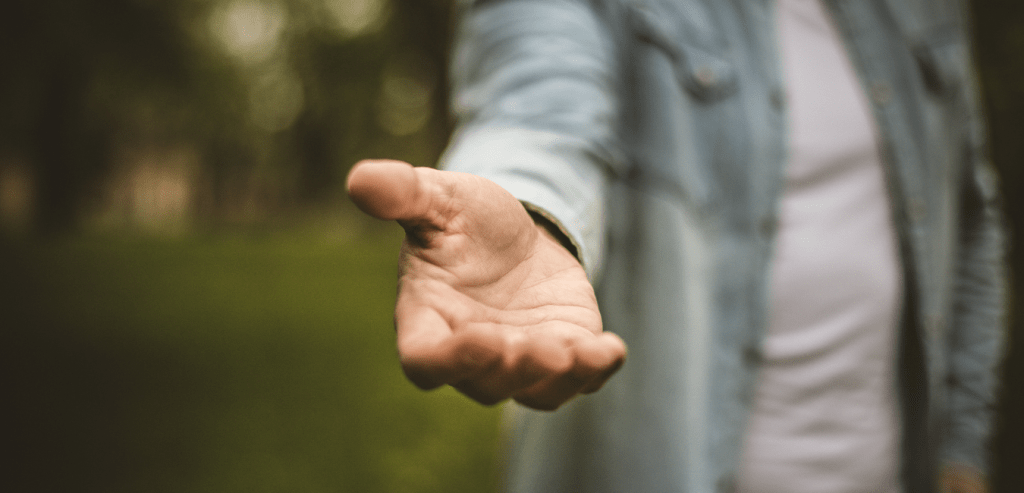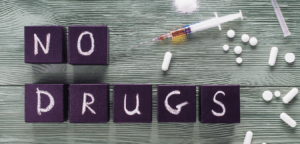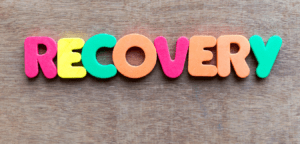When someone struggles with addiction, it can have serious negative effects on their relationships with family, friends, and work colleagues.
If you know or suspect that someone in your life suffers from alcohol or drug addiction, you will probably want to help the one that you love, but this can be met with hostility or denial. Addiction is a chronic, relapsing brain disease, and the path to recovery for someone who is addicted is often a long and difficult one.
This inevitably impacts those closest to them, and professional help may be needed to get them to treatment and into recovery.
Signs of Addiction
It is important for family members and friends to recognise the signs and symptoms of addiction. These can differ depending on the type of addictions they are coping with, whether it be drugs, alcohol or gambling addiction.
Many people are able to hide their addiction even from those closest to them, and it can be tempting to ignore the problem when that seems easier. Some of the most common signs that someone is suffering from addiction include:
Behavioural changes
- Developing problems at work or school
- Lying about the substance or how much they use
- Becoming angry when asked about their use
- Changing friends groups and/or Secretive behaviour, lying, stealing
- Changes to normal habits or mood swings
- Quitting social activities/Criminal behaviour
Physical Changes
- Appearing intoxicated more often
- Problems with memory or cognition
- Unusual tiredness/Bloodshot eyes
- Rapid weight fluctuations/Poor hygiene and grooming
Barriers to Helping an Addicted Person
As much as you want to help your loved one, it is common for those who suffer from addiction to exhibit negative behaviours and attitudes when confronted about their use. Many people will react in the following ways:
Denial
Part of the reason that addiction is so difficult to manage and treat is that the person affected refuses to accept that they have a problem. It can be frustrating and confusing for those around the person affected to continue watching them behave in destructive ways and remain in denial when confronted.
Anger
When confronted, the person affected will deny they have a problem, and will commonly react in anger, initially or if pushed on the issue. People with addiction will generally be feeling defensive and can turn aggressive if the issue of their using is raised. Even the “nicest” approach may be met with anger.
Avoidance
The person affected may start to avoid you, or avoid speaking about their problems, if they begin to feel “attacked”. A person with an addiction will often use it as a coping method to avoid problems and may continue this avoidance behaviour, starting to shut themselves away from you and other loved ones that confront them.
How You Can Help Someone with an Addiction
Whether you are trying to help someone who has never been admitted to treatment, or someone who was in recovery and is now relapsing, here are 6 things to remember that can help:
1. Don’t enable
It can be really hard to watch someone spiral into addiction, especially if they have reached the point where they can no longer manage daily functions that they used to. In these cases, family and friends might be tempted to step in and help, such as taking over their responsibilities, giving them money, doing more household chores and childcare or apologising to other people for their behaviour.
It can be difficult to draw the line between supporting a loved one and enabling them. Although this is done from a place of love, or feeling of obligation, it helps to shield the person affected from their reality. In many cases, it is not until the person is faced with the consequences of their actions and behaviour that they can come to terms with their own addiction and commit to treatment and recovery.
2. Use Compassion
The old wisdom is that someone with addiction should be treated with “tough love” by those around them to give them the incentive to change. However, this can be counterproductive. Without support, the person who is addicted can feel even more alone and cut off, which will drive them to using more. Negative social support is one of the greatest barriers to entry to treatment, as the person fears they will be ostracised from their family and friends.
But compassion can be one of the greatest motivators that family and friends can use, as they encourage the addicted person to seek help. By showing compassion, the person suffering will feel more comfortable and able to open up, as well as understand how their actions are affecting you. Leading experts now believe that empathy and social support can be key to getting people into treatment, and staying in recovery. However, it is important to understand the difference between enabling and supporting, which can mean the difference in getting treatment or not. Some ways to exercise compassion include:
- Open questions
- Family inclusion in therapy
- Listening and acknowledging pain
- Working on understanding addiction
- Emphasising care and concern
3. Don’t Focus on Guilt or Shame
Someone struggling with addiction is usually already feeling deep guilt, shame and anger about their use. In addition, many feel judged by their family and friends, and will act defensively in response to any criticism that is levelled at them. Rather than helping, if the judgement or moralising does appear, they may turn to using it to combat the feelings of stress that this gives them.
It is understandable however, as the person suffering may have already deeply hurt you, broken your trust or angered you. Where there is love left though, it is important to understand that feelings of shame, anger, and judgement can negatively affect your relationship with the person addicted and actively harm their chances of recovery. Research shows that shame is one of the least effective incentives to change, because it is isolating, painful and can make the addicted person believe they are unworthy of love or treatment.
4. Encourage Healthy Habits
When someone suffers from addiction, it is common that they will also suffer from a decline in physical health, mental health, and from poor hygiene. Mental health issues such as depression and anxiety are often exacerbated by addiction, or worsen the addiction itself. Encouraging the person affected to seek treatment for their health issues can help them understand the toll their addiction is taking on their life. Establishing a structured environment, encouraging healthy eating habits and exercise can help the person affected to want a healthier lifestyle overall, and seek out treatment.
5. Take care of yourself
This is one of the most important things that you can do if you know someone suffering from addiction. Helping someone with an addiction can be physically, mentally and emotionally draining, and it is important to care for yourself first. Recognise that this is not selfish, it is self-care. It can be heart-breaking to see someone make the same mistakes repeatedly, but you need to take care of yourself before you can help anyone else. Addiction is a family disease, one that can break up relationships and ruin multiple lives, and it is a chronic disease that will affect those closest to the person addicted for the rest of their lives. Please take the time to reach out to others for support, and here are some things you can do to help yourself:
- Don’t blame yourself
- Go to therapy
- Join support groups such as Al-Anon or Families Anonymous
- Do something you love
- Eat healthily and exercise
6. Remain Positive
Addiction can destroy families, friends and work relationships. It is a chronic disease that will last for the rest of the addicted person’s life, and it is a relapsing disease. Knowing this, it can seem almost impossible to stay hopeful.
But addiction is treatable, and while there’s no cure, many people remain in recovery for the rest of their lives or are able to return to recovery after a relapse. When hope fades, the chances of recovery diminish as well, even though the addicted person has the potential to sustain a long and meaningful life.
When to Stage an Intervention
Family and friends are affected as much by the addiction as the addicted person themselves is. When it gets to the point that they want to confront the addicted person, it can be helpful to stage an intervention. Most of the time, addicted persons will not want to accept that they have a disease, but an intervention can help them see how much it affects the people they know and care about most.
An intervention usually involves a group of family and friends, led by a professional such as an interventionist or therapist. The professional will guide the meeting, ensure that everyone gets to say what they want in a supportive setting, and their presence can help to calm the addicted person or enforce the importance of the problem. The person affected will usually remain in denial about their disease, but an intervention can be an important first step on the road to recovery.
Helping someone with an addiction takes education, patience and empathy. Addiction is a harrowing experience for everyone involved, and if left untreated, it can destroy relationships, families and the addicted person may end up alone. Recognising this and reaching out before this happens can be hard, but it is important to remain optimistic and get support when you need it.
Credited to:Castlecraig










